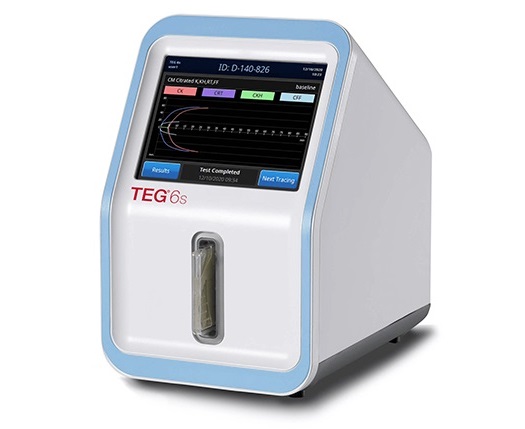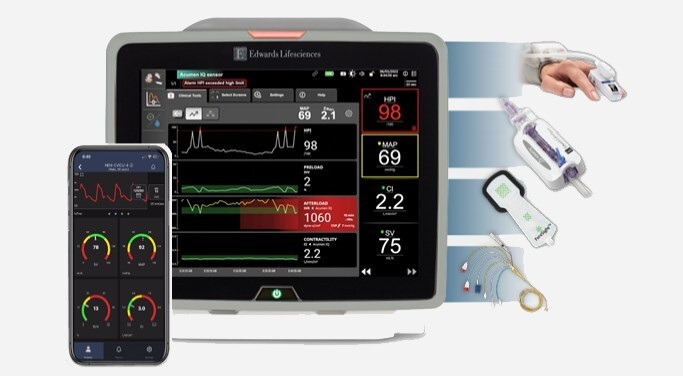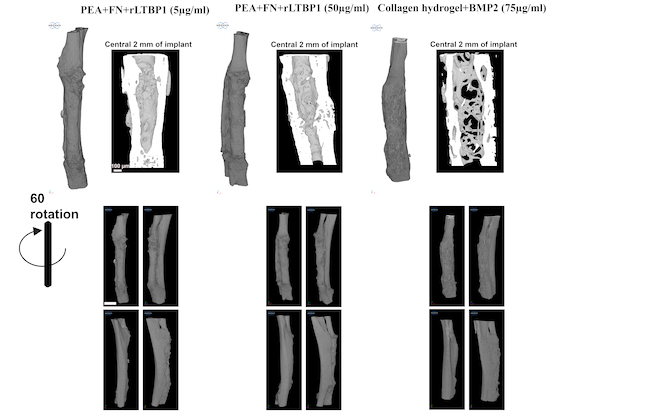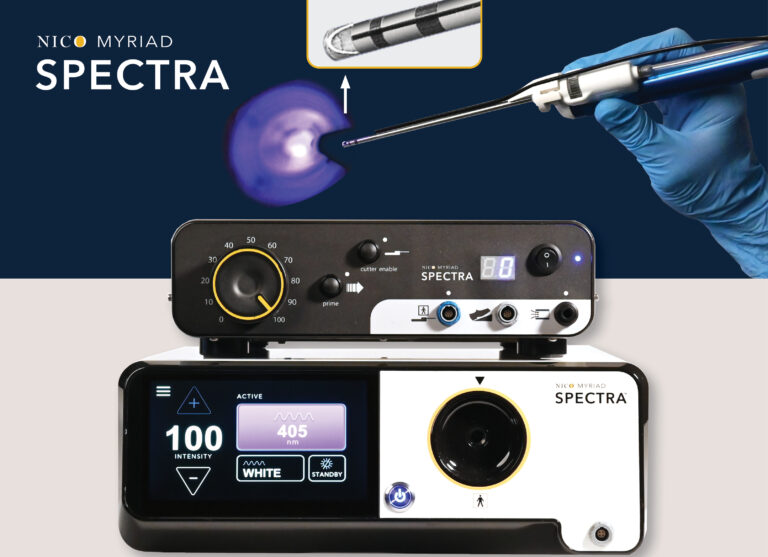Women with Low-Risk Breast Cancer Could Avoid Overtreatment
|
By HospiMedica International staff writers Posted on 13 Oct 2015 |
A new study confirms expert-based clinical guidelines that recommend that a risk score should be used to risk stratify breast cancer (BC) patients and assign adjuvant chemotherapy.
Researchers at Albert Einstein College of Medicine (New York, NY, USA) conducted a study that enrolled 10,253 women with newly diagnosed hormone receptor-positive (HER2)-negative, node-negative BC that was 1.1–5.0 cm in size. Tumor specimens from all patients were evaluated by means of 21-gene (Oncotype Dx) assay to analyze tumor specimens and determine disease risk, as derived from prior studies that suggest recurrence risk as high as 10% at 5 years among women with a score of 11, and as high as 20% for women with a risk score of 25.
Accordingly, women who had a risk score of 0–10 (range 0–100) received endocrine therapy alone. Women with scores over 26 received adjuvant chemotherapy plus hormonal therapy; those with intermediate scores of 11–25 were randomized to chemotherapy plus endocrine therapy, or endocrine therapy alone. The primary endpoint was survival free of invasive cancer, including local, regional, distant, or contralateral breast cancer recurrence; second non-breast invasive cancer; or death without evidence of recurrence.
The results showed that 1,626 women had a risk score of 10 or less, and all but 6 of them received endocrine therapy without chemotherapy, with a 5-year freedom from invasive recurrence at 98.7%. The risk of metastatic recurrence was less than one percent, and 98% of the women remained alive at five years, with only tumor grade demonstrating a significant association to freedom from recurrence. The results were presented at the European Cancer Congress, held during September 2015 in Vienna (Austria).
“About 85% of the patients would be expected to remain free of recurrence after 5 years if they received only endocrine therapy. The addition of chemotherapy would lead to a reduction in relative risk of 30% or an absolute reduction of 5%,” said lead author Joseph Sparano, MD. “Many patients with estrogen receptor-positive breast cancer would therefore be overtreated with chemotherapy on the basis of clinicopathologic features alone, since most would have been adequately treated with endocrine therapy alone.”
Adjuvant chemotherapy has been shown to reduce the risk of recurrence across a broad population of breast cancer patients, including those with a low risk of recurrence on the basis of anatomic and clinical features. In 2001 a consensus panel convened by the US National Institutes of Health (NIH; Bethesda, MD, USA) concluded that adjuvant combination chemotherapy should be recommended to the majority of women with localized breast cancer regardless of lymph node, menopausal, or hormone receptor status.
Related Links:
Albert Einstein College of Medicine
US National Institutes of Health
Researchers at Albert Einstein College of Medicine (New York, NY, USA) conducted a study that enrolled 10,253 women with newly diagnosed hormone receptor-positive (HER2)-negative, node-negative BC that was 1.1–5.0 cm in size. Tumor specimens from all patients were evaluated by means of 21-gene (Oncotype Dx) assay to analyze tumor specimens and determine disease risk, as derived from prior studies that suggest recurrence risk as high as 10% at 5 years among women with a score of 11, and as high as 20% for women with a risk score of 25.
Accordingly, women who had a risk score of 0–10 (range 0–100) received endocrine therapy alone. Women with scores over 26 received adjuvant chemotherapy plus hormonal therapy; those with intermediate scores of 11–25 were randomized to chemotherapy plus endocrine therapy, or endocrine therapy alone. The primary endpoint was survival free of invasive cancer, including local, regional, distant, or contralateral breast cancer recurrence; second non-breast invasive cancer; or death without evidence of recurrence.
The results showed that 1,626 women had a risk score of 10 or less, and all but 6 of them received endocrine therapy without chemotherapy, with a 5-year freedom from invasive recurrence at 98.7%. The risk of metastatic recurrence was less than one percent, and 98% of the women remained alive at five years, with only tumor grade demonstrating a significant association to freedom from recurrence. The results were presented at the European Cancer Congress, held during September 2015 in Vienna (Austria).
“About 85% of the patients would be expected to remain free of recurrence after 5 years if they received only endocrine therapy. The addition of chemotherapy would lead to a reduction in relative risk of 30% or an absolute reduction of 5%,” said lead author Joseph Sparano, MD. “Many patients with estrogen receptor-positive breast cancer would therefore be overtreated with chemotherapy on the basis of clinicopathologic features alone, since most would have been adequately treated with endocrine therapy alone.”
Adjuvant chemotherapy has been shown to reduce the risk of recurrence across a broad population of breast cancer patients, including those with a low risk of recurrence on the basis of anatomic and clinical features. In 2001 a consensus panel convened by the US National Institutes of Health (NIH; Bethesda, MD, USA) concluded that adjuvant combination chemotherapy should be recommended to the majority of women with localized breast cancer regardless of lymph node, menopausal, or hormone receptor status.
Related Links:
Albert Einstein College of Medicine
US National Institutes of Health
Latest Patient Care News
- First-Of-Its-Kind Portable Germicidal Light Technology Disinfects High-Touch Clinical Surfaces in Seconds
- Surgical Capacity Optimization Solution Helps Hospitals Boost OR Utilization

- Game-Changing Innovation in Surgical Instrument Sterilization Significantly Improves OR Throughput
- Next Gen ICU Bed to Help Address Complex Critical Care Needs
- Groundbreaking AI-Powered UV-C Disinfection Technology Redefines Infection Control Landscape
- Clean Hospitals Can Reduce Antibiotic Resistance, Save Lives
- Smart Hospital Beds Improve Accuracy of Medical Diagnosis
- New Fast Endoscope Drying System Improves Productivity and Traceability
- World’s First Automated Endoscope Cleaner Fights Antimicrobial Resistance
- Portable High-Capacity Digital Stretcher Scales Provide Precision Weighing for Patients in ER
- Portable Clinical Scale with Remote Indicator Allows for Flexible Patient Weighing Use
- Innovative and Highly Customizable Medical Carts Offer Unlimited Configuration Possibilities
- Biomolecular Wound Healing Film Adheres to Sensitive Tissue and Releases Active Ingredients
- Wearable Health Tech Could Measure Gases Released From Skin to Monitor Metabolic Diseases
- Wearable Cardioverter Defibrillator System Protects Patients at Risk of Sudden Cardiac Arrest
- World's First AI-Ready Infrasound Stethoscope Listens to Bodily Sounds Not Audible to Human Ear
Channels
Critical Care
view channel.jpg)
GPS-Like Smart Pills with AI Provide Real-Time 3D Monitoring Of Gastrointestinal Health
Gas produced in the intestines when bacteria digest food can provide valuable information about a person's health. Currently, to measure gastrointestinal (GI) tract gases, physicians use methods such as... Read more
Soft Robots with Electronic Skins and Artificial Muscles to Provide Medical Treatment
Researchers have developed advanced soft robots that are equipped with electronic skins and artificial muscles, enabling them to detect their environment and modify their actions in real time.... Read moreSurgical Techniques
view channel
Total Robotic Metabolic and Bariatric Surgery Proves More Beneficial than Conventional Laparoscopy
According to the U.S. Centers for Disease Control and Prevention (CDC), 42.4% of Americans are affected by obesity. Research indicates that obesity can compromise the immune system, trigger chronic inflammation,... Read moreWirelessly Activated Robotic Device Aids Digestion in Patients with Compromised Organs
The transport of fluids and solids is essential in the human body, driven by a wave-like movement in the lumen known as peristalsis. However, peristalsis can be disrupted in patients who have obstructions... Read moreHealth IT
view channel
Machine Learning Model Improves Mortality Risk Prediction for Cardiac Surgery Patients
Machine learning algorithms have been deployed to create predictive models in various medical fields, with some demonstrating improved outcomes compared to their standard-of-care counterparts.... Read more
Strategic Collaboration to Develop and Integrate Generative AI into Healthcare
Top industry experts have underscored the immediate requirement for healthcare systems and hospitals to respond to severe cost and margin pressures. Close to half of U.S. hospitals ended 2022 in the red... Read more
AI-Enabled Operating Rooms Solution Helps Hospitals Maximize Utilization and Unlock Capacity
For healthcare organizations, optimizing operating room (OR) utilization during prime time hours is a complex challenge. Surgeons and clinics face difficulties in finding available slots for booking cases,... Read more
AI Predicts Pancreatic Cancer Three Years before Diagnosis from Patients’ Medical Records
Screening for common cancers like breast, cervix, and prostate cancer relies on relatively simple and highly effective techniques, such as mammograms, Pap smears, and blood tests. These methods have revolutionized... Read morePoint of Care
view channel
POCT for Infectious Diseases Delivers Laboratory Equivalent Pathology Results
On-site pathology tests for infectious diseases in rural and remote locations can achieve the same level of reliability and accuracy as those conducted in hospital laboratories, a recent study suggests.... Read more
Cartridge-Based Hemostasis Analyzer System Enables Faster Coagulation Testing
Quickly assessing a patient's total hemostasis status can be critical to influencing clinical outcomes and using blood products. Haemonetics Corporation (Boston, MA, USA) has now obtained 510(k) clearance... Read more
Critical Bleeding Management System to Help Hospitals Further Standardize Viscoelastic Testing
Surgical procedures are often accompanied by significant blood loss and the subsequent high likelihood of the need for allogeneic blood transfusions. These transfusions, while critical, are linked to various... Read moreBusiness
view channel
BD Acquires Edwards Lifesciences' Critical Care Product Group for USD 4.2 Billion
BD (Becton, Dickinson and Company, Franklin Lakes, NJ, USA) and Edwards Lifesciences (Irvine, CA, USA) have entered into a definitive agreement under which BD will acquire Edwards' Critical Care product... Read more



















